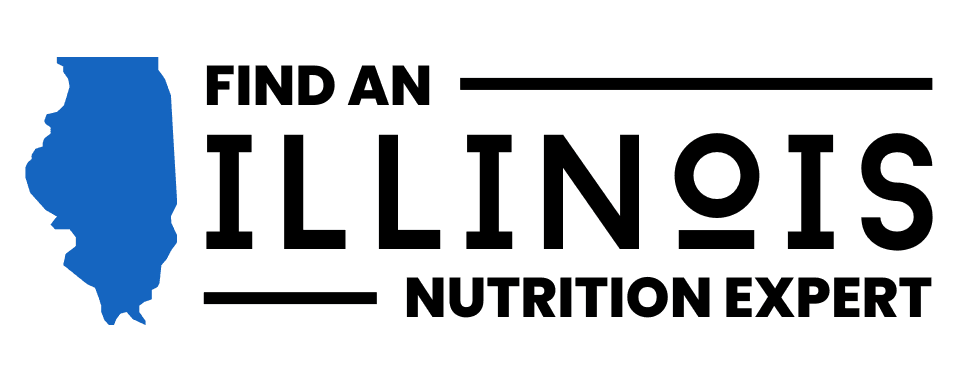Frequently Asked Questions
Thinking about working with a dietitian in Illinois? You might have some questions about how it all works. Please review our FAQ below. Get in touch if there are additional items we can help with.
While the terms “dietitian” and “nutritionist” are often used interchangeably, there are differences in their qualifications and scope of practice.
Nutritionist is broader term that can refer to individuals with varying levels of education and training. The term nutritionist is generally not protected or regulated in any way. Anyone can call themself a nutritionist regardless of any training they do or don’t have.
A Registered Dietitian (RD/RDN) is a qualified nutrition expert. Becoming an RD requires a rigorous academic program, supervised practice, and passage of a national exam. As of 2024, a Masters Degree is required to become a Registered Dietitian. RDs provide medical nutrition therapy (MNT), which involves using food and nutrition to treat diseases and manage health conditions. The ability to call oneself a dietitian is legally protected by licensure laws in many states.
Another type of qualified nutrition expert is a Certified Nutrition Specialist (CNS), which also requires a Masters Degree, completion of supervised practice, and passage of a national exam. CNS’s can obtain the same licensure as Registered Dietitians in certain states, including Illinois, which allows them to provide MNT to patients. This directory features several expert providers with a CNS credential!
Most popular insurance plans, including BCBS/Anthem, UHC/UMR, Aetna, and Cigna offer some form of coverage for nutrition counseling services, or “Medical Nutrition Therapy”. You can call your plan to find out exactly what is covered. Coverage may vary for self-funded plans.
For self-pay providers (who do not accept insurance), you can usually request a Superbill from them, which you can submit to your insurance company for possible reimbursement. Reimbursement rates may vary per insurance provider.
Whether a referral is needed typically depends on your insurance plan. For example, all Medicare plans require a referral from an MD or DO.
You usually don’t need a referral to see a provider who doesn’t bill insurance. One unique exception is California-based patients. All patients in California need a referral to see a dietitian, insurance or not.
If you have found a dietitian in this directory you want to work with (and they accept your insurance), that dietitian may be able to offer some insight on what your plan typically requires. But calling your insurance provider is the best way to get this information.
Some dietitians in this directory may be located in Wisconsin, Indiana, or other states surrounding Illinois.
As long as a dietitian is a licensed dietitian in Illinois (no matter where they live themself), they are allowed to provide counseling to patients who are physically located in Illinois. All providers in this directory are licensed dietitians in the state of Illinois.
Dietitians providing counseling services must hold licensure in the state where the PATIENT is physically located.
Therefore, patients outside Illinois can see an Illinois-based dietitian, as long as that dietitian is also licensed in the patient’s home state. Please note, some states such as Arizona, California, Colorado, Michigan, New Jersey, and Virginia do NOT license dietitians. There are no rules that prevent an out-of-state provider from working with patients in these states.
Otherwise, licensure varies state to state. If you find a dietitian you want to work with, but aren’t sure if they have the right state licensure, just reach out to that provider to ask for clarification.
